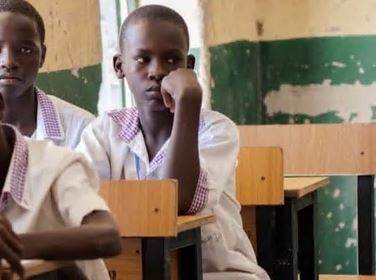Report: School kidnapping, a persistent problem in Nigeria

Education is crucial to national growth and development, and as Cristian Munduate, the Representative of UNICEF in Nigeria, emphasized, schools should be sanctuaries of learning and growth, not sites of fear and violence.
Nigeria, with one of the strongest armies in the region, is plagued by insecurity that puts vulnerable groups at risk. Throughout the country, there has been widespread targeting of vulnerable populations, including kidnappings for ransom or to pressure the government to meet the aggressors’ demands, exacerbated by worsening economic conditions.
Some reports have pointed out that more than 1,680 students have been abducted since 2014, while more recent evidence show that there have been 735 mass abductions in Nigeria, significantly contributing to deteriorating absentee statistics, with one in three Nigerian children not in school according to UNICEF. The report by the socio-political risk consultancy firm, SBM Intelligence, highlight the abduction of 3,620 people between July 2022 and June 2023 with about $3,878,390 paid in ransoms.
The ransom demand requires payment by the victims’ relatives or in some cases the government, with sometimes deadly consequences for delays or non-payment. On the other hand, the released abduction victims have reported harrowing conditions while in captivity, often threatened with death and enduring unhygienic, unpleasant living conditions, such as sleeping out in the open and trekking long distances into forests where they were kept.
The girls are particularly vulnerable to rape and even forced marriages, routinely beaten and tortured until the captors’ demands are met, consequently leaving victims with serious psychological wounds and trauma. Some girls lose their lives for childbirth, some due to starvation or snakebite, and others in government air strikes against Boko Haram, a Nigeria-based group that seeks to overthrow the current Nigerian Government, killing tens of thousands of people and displacing more than 2 million.
Abductees returning home struggle to resume their interrupted lives, some raising children fathered by their captors. Those who spent the longest time in captivity experiencing the most difficulty reintegrating with civilian life after various degrees of traumatic and life-threatening experiences in the hands of the kidnappers.
Although Nigerian lawmakers outlawed ransom payments last year, desperate families continue to pay as the kidnappers are ruthless, sometimes shooting dead the victims when their relatives delay ransom payments. Thus, ransoms have changed into a lucrative way to fund other crimes and control villages, especially in the nation’s mineral-rich but poorly policed northwestern region, encouraging more kidnappings, with the latest in March 2024 when 137 children were marched from their classrooms into nearby forests.
The United Nations children’s agency’s Nigeria office found that only 43% of minimum safety standards were met in over six thousand surveyed schools, worsening the situation despite strategies put in place to ensure that incidents are mitigated. The socioeconomic conditions, corruption, and a lack of cohesiveness in the security structure are among the complex, multilayered issues at the heart of the worsening insecurity crisis.
The centralized security architecture in Nigeria and power concentration in the hands of the federal government have hindered the ease with which security agents can operate, leading to calls for state policing, especially because of security agencies’ failure to collaborate effectively. There have also been accusations of corruption, sabotage, connivance and brutality of Nigerian military in the past, fracturing relationships with communities and potential sources of intelligence.
As a result of all these problems and shortcomings, some parents decide to marry their daughters off early to avoid them getting kidnapped or worse. More than half of the girls in Nigeria are currently not attending school at a basic level, and 48% of that figure are from the northeast and northwest.
However, education is crucial to national growth and development, and as Cristian Munduate, the Representative of UNICEF in Nigeria, emphasized, schools should be sanctuaries of learning and growth, not sites of fear and violence. Nevertheless, Nigeria’s continuing abduction crisis is posing serious challenges to schooling in the worst-affected regions of the northeast and northwest, raising concerns that it may have more extensive implications for the country in the near future.
References
https://www.africanews.com/2024/04/11/nigeria-10-years-on-from-chibok-kidnappings-still-frequent/
https://www.aljazeera.com/features/2024/4/3/why-mass-kidnappings-still-plague-nigeria-a-decade-after-chibok-abductions
https://www.france24.com/en/africa/20240414-a-decade-on-tragedy-of-nigeria-s-chibok-girls-continues-outside-the-spotlight
https://www.theguardian.com/world/2024/mar/08/nigeria-sends-troops-to-rescue-more-than-250-kidnapped-schoolchildren

